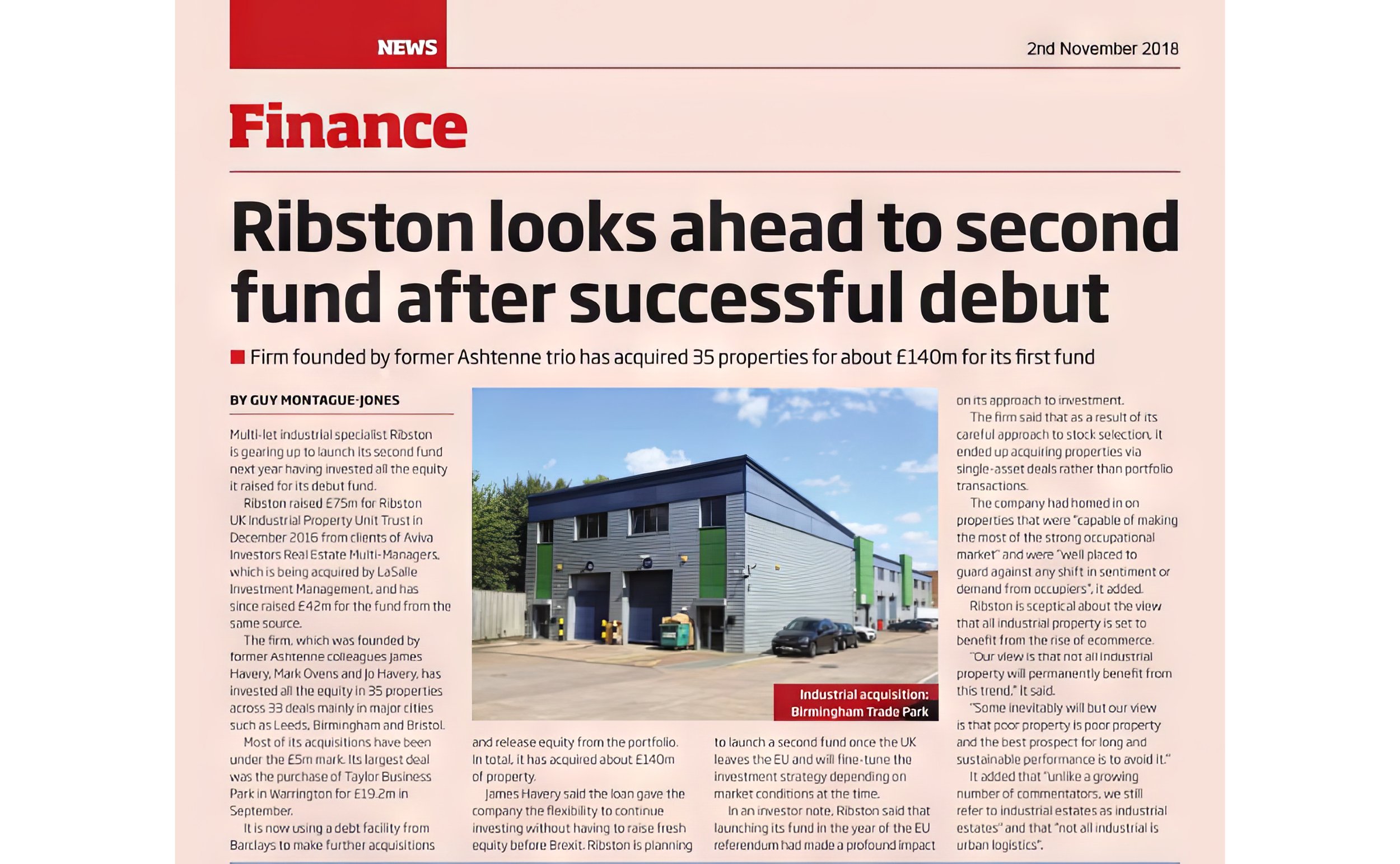Ribston looks ahead to second fund after successful debut
02/11/2018
Multi-let industrial specialist Ribston is gearing up to launch its second fund next year having invested all the equity it raised for its debut fund.
Ribston raised £75m for Ribston UK Industrial Property Unit Trust in December 2016 from clients of Aviva Investors Real Estate Multi Managers, which is being acquired by LaSalle Investment Management, and has since raised £42m for the fund from the same source.
The firm, which was founded by former Ashtenne colleagues James Havery, Mark Ovens and Joe Havery, has invested all the equity in 35 properties across 33 deals mainly in major cities such as Leeds, Birmingham and Bristol.
Most of its acquisitions have been under the £5m mark. Its largest deal was the purchase of Taylor Business Park in Warrington for £19.2m in September.
It is now using a debt facility from Barclays to make further acquisitions and release equity from the portfolio. In total, it has acquired about £140m of property.
James Havery said the loan gave the company the flexibility to continue investing without having to raise fresh equity before Brexit. Ribston is planning to launch a second fund once the UK leaves the EU and will fine-tune the investment strategy depending on market conditions at the time.
In an investor note, Ribston said that launching its fund in the year of the EU referendum had made a profound impact on it’s approach to investment.
The firm said that as a result of it’s careful approach to stock selection, it ended up acquiring properties via single-asset deals rather that portfolio transactions.
The company had honed in on properties that were “capable of making the most of the strong occupational market” and were “well placed to guard against any shift in sentiment or demand from occupiers” it added.
Ribston is sceptical about the view that all industrial property is set to benefit from the rise of ecommerce. “Our view is that not all industrial property will permanently benefit from this trend” it said.
“Some inevitably will but our view is that poor property is poor property and the best prospect for long and sustainable performance is to avoid it."
It added that "unlike a growing number of commentators, we still refer to industrial estates as industrial estates" and that "not all industrial is urban logistics!”
Article (subscription required).
